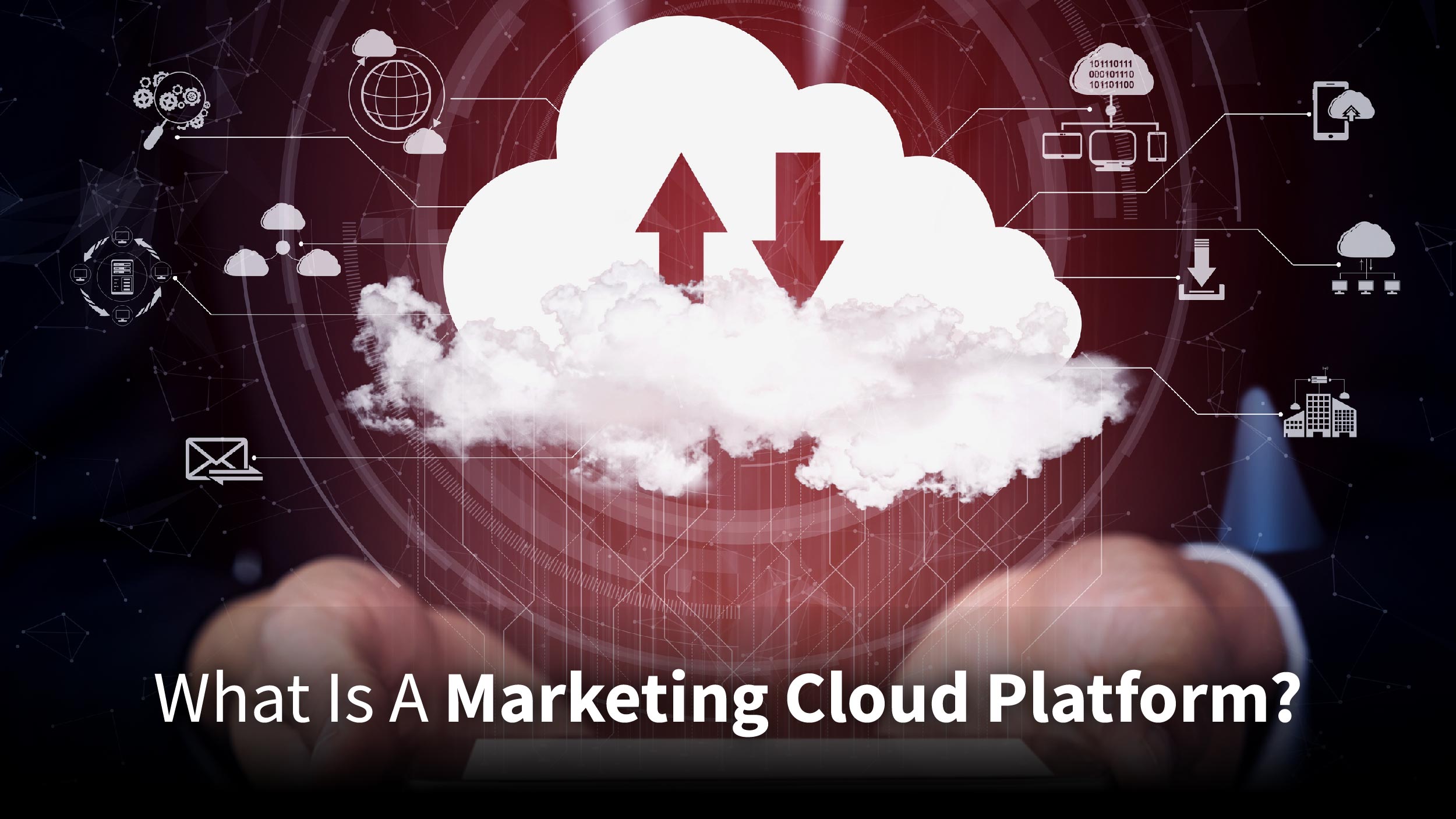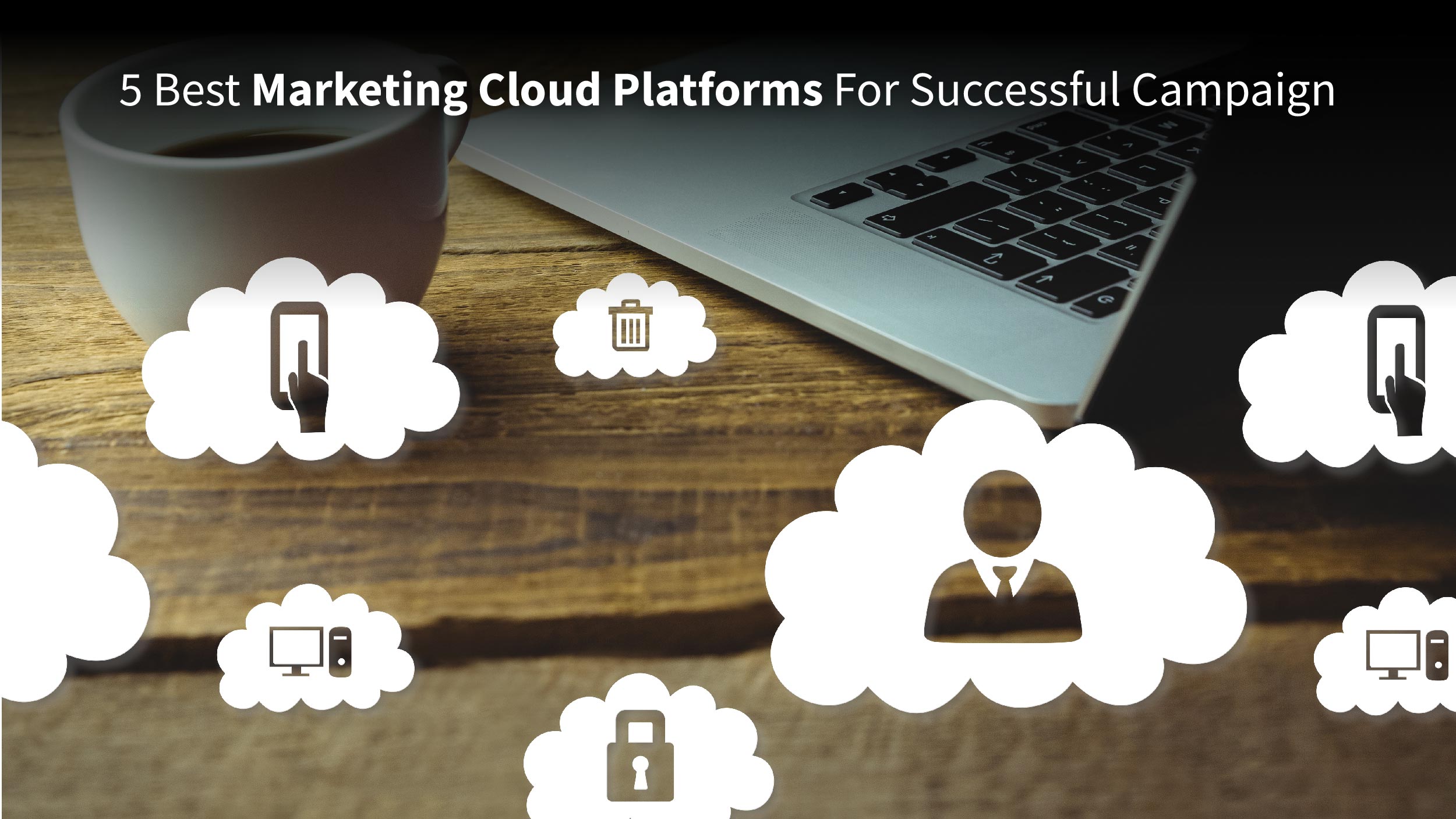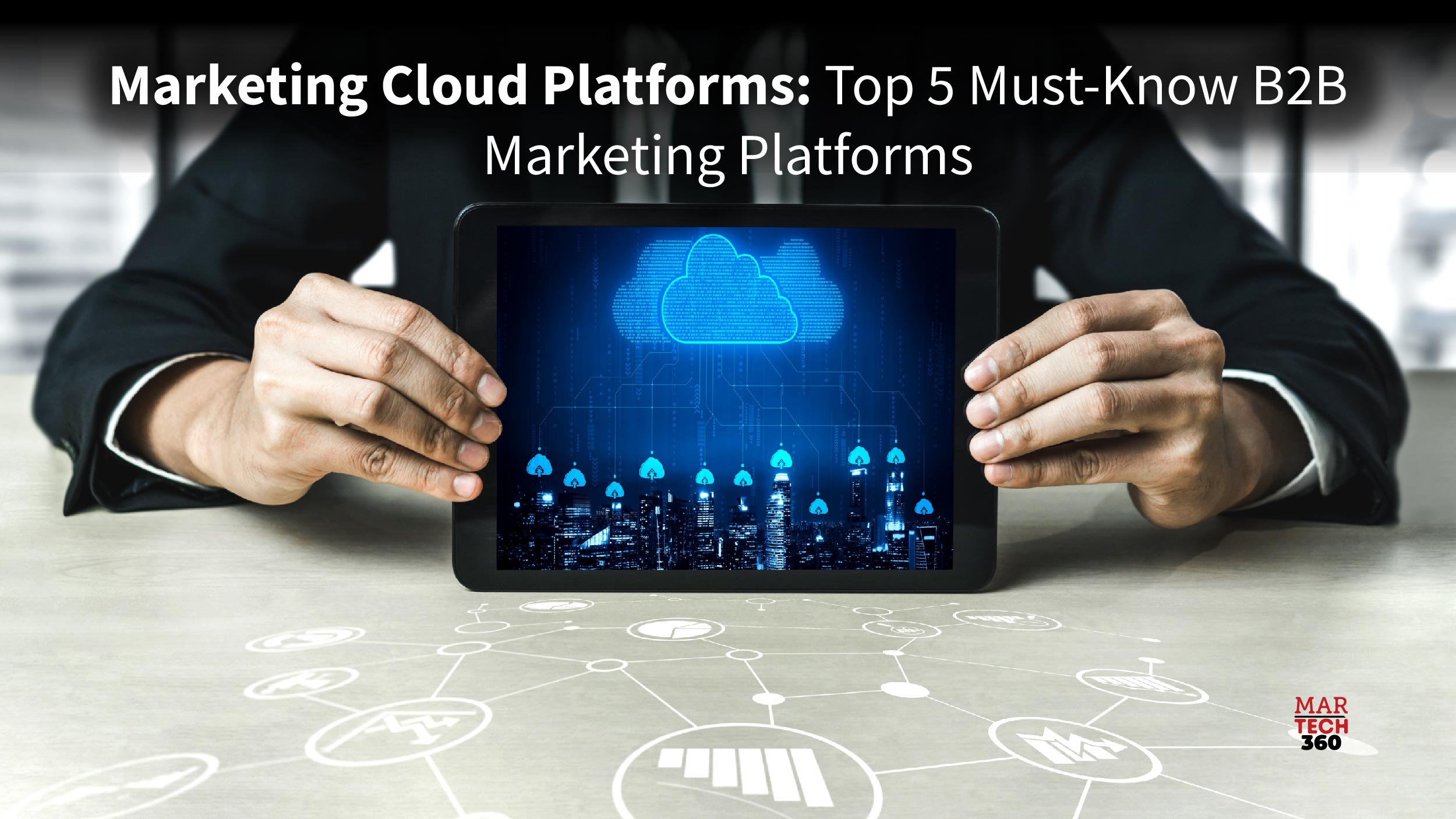Marketing cloud platforms are like a big toolbox for companies to manage all their online activities. This involves sending emails, posting on social media, understanding how your audience is interacting with your posts, etc.
A marketing cloud is like a big umbrella that puts all these apps in one place for effective marketing. This way, companies can be more personal and effective in their marketing.
Why? Accenture reported that 91% of customers prefer brands that recognize and provide relevant offers. This article discusses the top 5 game-changing marketing cloud platforms.
What Is A Marketing Cloud Platform?
 Marketing cloud platforms are a digital platform that helps companies with their marketing initiatives. It is a cloud-based software platform that combines analytics, social media management, email marketing, and other marketing capabilities. These systems track pertinent consumer data, such as behavior and preferences, to aid in client profiling, targeting, and the development of successful marketing campaigns.
Marketing cloud platforms are a digital platform that helps companies with their marketing initiatives. It is a cloud-based software platform that combines analytics, social media management, email marketing, and other marketing capabilities. These systems track pertinent consumer data, such as behavior and preferences, to aid in client profiling, targeting, and the development of successful marketing campaigns.
It offers a single, easily manageable platform for all marketing assets. It also has functions like predictive analytics, which aid in decision-making when it comes to things like welcoming a new client.
By monitoring their visibility and releasing interesting marketing content, companies may establish a powerful online presence with such cloud-based marketing platforms.
Also Read: What Is a Marketing Cloud? Benefits & Components
5 Best Marketing Cloud Platforms For Successful Campaign
 Adobe Marketing Cloud
Adobe Marketing Cloud
Overview: A suite of marketing tools called Adobe Marketing Cloud allows you to manage content and assets, create tailored campaigns, and gain deep customer intelligence. Solutions for Analytics, Audience Manager, Campaign, Experience Manager, Media Optimizer, Primetime, Social, and Target are all included in the portfolio. Adobe Analytics is a collection of real-time and predictive analytics tools that may be connected with marketing reports and analytics, ad hoc analysis, and insight applications from third-party sources.
Key Features:
- Advanced Analytics and Reporting: Provides detailed insights into campaign performance.
- Cross-Channel Marketing Capabilities: Manages marketing efforts across multiple channels like email, social media, and mobile.
- Personalization and Customer Journey Management: Tailors marketing messages based on customer behavior and preferences.
- Integration with Adobe Creative Cloud: Seamlessly connects with Adobe’s creative tools for content creation.
Salesforce Marketing Cloud
Overview: Salesforce Marketing Cloud is renowned for its strong CRM integration and extensive marketing automation capabilities, making it a top choice for businesses of all sizes. In terms of H1 2022 CRM share, Salesforce outperformed SAP, Oracle, Microsoft, and Adobe combined.
With a market share of 14.7 percent, Salesforce’s marketing cloud platform outperformed Adobe, its closest competitor, by 11.1 percent.
Key Features:
- Email and Mobile Marketing: Allows personalized communication through email and mobile devices.
- Social Media Management: Manages social media campaigns and interactions.
- Customer Journey Builder: Maps out customer interactions to create tailored experiences.
- Data Management and Analytics: Provides tools for collecting, analyzing, and using customer data.
Oracle Marketing Cloud
Overview: Oracle Marketing Cloud is one of the best marketing cloud platforms, offering a comprehensive range of tools for cross-channel marketing, data management, and customer intelligence, catering to both B2B and B2C markets.
Key Features:
- Cross-Channel Orchestration: Coordinates marketing efforts across different channels.
- Data Management Platform: Handles large volumes of customer data for better segmentation and targeting.
- Advanced Analytics: Provides in-depth analysis of marketing performance and customer behavior.
- B2B and B2C Marketing Capabilities: Tailors marketing strategies for both business and consumer markets.
IBM Watson Marketing
Overview: The IBM Interactive Marketing solution offers a comprehensive set of tools designed to deliver highly personalized and relevant marketing across both inbound and outbound channels, whether online or offline, in real time. The solution portfolio includes IBM Campaign, IBM Interact, IBM eMessage, IBM Marketing Operations, IBM product recommendations, IBM Email Optimization, and IBM LIVEmail.
- IBM Campaign: Delivers personalized marketing messages across all touchpoints.
- IBM Interact: Determines the right message to present in real-time for inbound channels.
- IBM eMessage: Engages customers with timely, personalized email and mobile messages.
- IBM Marketing Operations: Streamlines marketing processes and enhances management efficiency.
Key Features:
- AI-Driven Analytics: Uses AI to analyze customer data and predict future behaviors.
- Campaign Automation: Automates marketing campaigns to increase efficiency and effectiveness.
- Personalization at Scale: Delivers personalized marketing messages to large audiences.
- Integration with IBM Watson AI: Leverages IBM’s powerful AI technology for advanced marketing insights.
HubSpot Marketing Hub
Overview: HubSpot Marketing Hub is an all-in-one inbound marketing platform designed for small to mid-sized businesses, offering a comprehensive suite of tools to attract, engage, and delight customers.
Key Features:
- Email Marketing and Automation: Simplifies the creation and automation of email campaigns.
- Social Media Management: Manages social media posts and interactions.
- Lead Generation and Management: Captures and nurtures leads through various stages of the buyer’s journey.
- Analytics and Reporting: Provides detailed reports on marketing performance.
End Note
As we look to the future, marketing cloud platforms will continue to evolve and become even more integral to business success. AI and machine learning will drive deeper personalization and predictive analytics, enabling marketers to anticipate customer needs with greater accuracy. Cross-channel integration will become seamless, allowing for more cohesive and synchronized campaigns. Enhanced data privacy and compliance tools will ensure businesses can meet regulatory requirements while maintaining customer trust. The continuous innovation in these platforms will empower businesses to create more engaging, data-driven marketing strategies that deliver exceptional customer experiences.


Comments are closed.